C++20: Define the Concept Regular and SemiRegular
When you want to define a concrete type that works well in the C++ ecosystem, you should define a type that “behaves link an int“. Formally, your concrete type should be regular. In this post, I define the concepts Regular and SemiRegular.
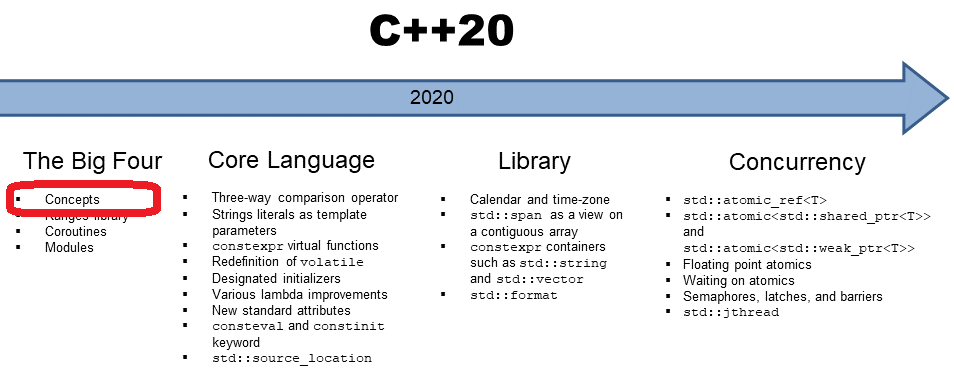
Regular and SemiRegular are essential ideas in C++. Sorry, I have to say concepts. For example, the rule T.46 from the C++ Core Guidelines: T.46: Require template arguments to be at least Regular or SemiRegular. Only one important question is left to answer: What are Regular or SemiRegular types? Before I dive into the details, this is the informal answer:
- A regular type “behaves link an int“. It could be copied and the result of the copy operation is independent of the original one and has the same value.
Okay, let me be more formal. A Regular type is also a SemiRegular type. Consequentially I start with a SemiRegular type.
SemiRegular
A SemiRegular type has to support the rule of six and be swappable.
- Default constructor: X()
- Copy constructor: X(const X&)
- Copy assignment: operator=(const X&)
- Move constructor: X(X&&)
- Move assignment: operator=(X&&)
- Destructor: ~X()
- swappable: swap(X&, Y&)
This was easy. Thanks to the type-traits library, defining the corresponding concepts is a no-brainer. Let me first define the corresponding type-trait isSemiRegular and then use it to define the concept SemiRegular.
template<typename T> struct isSemiRegular: std::integral_constant<bool, std::is_default_constructible<T>::value && std::is_copy_constructible<T>::value && std::is_copy_assignable<T>::value && std::is_move_constructible<T>::value && std::is_move_assignable<T>::value && std::is_destructible<T>::value && std::is_swappable<T>::value >{}; template<typename T> concept SemiRegular = isSemiRegular<T>::value;
 Modernes C++ Mentoring
Modernes C++ Mentoring
Do you want to stay informed: Subscribe.
Let’s continue.
Regular
Only one little step, and I’m done with the concept Regular. Additionally, to the concept SemiRegular the concept Regular requires that the type is equally comparable. I already defined in my last post the concept Equal.
template<typename T> concept Equal = requires(T a, T b) { { a == b } -> std::convertible_to<bool>; { a != b } -> std::convertible_to<bool>; };
Let me reuse the concept Equal to define the concept Regular.
template<typename T> concept Regular = Equal<T> &&
SemiRegular<T>;
Now, I’m curious. How are SemiRegular and Regular defined in C++20?
The concepts regular and semiregular in C++20
template<class T> concept movable = is_object_v<T> && move_constructible<T> && assignable_from<T&, T> && swappable<T>; template<class T> concept copyable = copy_constructible<T> && movable<T> && assignable_from<T&, const T&>; template<class T> concept semiregular = copyable<T> && default_constructible<T>; template<class T> concept regular = semiregular<T> && equality_comparable<T>;
There is no reason to define the concept Regular and SemiRegular but to explain it.
Interestingly, the concept regular is similar to my concept Regular but the concept semiregular is composed of more elementary concepts such as copyable and moveable. The concept movable is based on the function is_object from the type-traits library. From the referenced page, here is a possible implementation of the type-traits is_object.
template< class T> struct is_object : std::integral_constant<bool, std::is_scalar<T>::value || std::is_array<T>::value || std::is_union<T>::value || std::is_class<T>::value> {};
The final step in my post is missing. Let me try it out.
Usage for the concepts Regular and regular
To simplify it, the function templates behavesLikeAnInt and behavesLikeAnInt2 check if the arguments “behaves like an int“. This means my concept Regular and the C++20 concept regular is used to establish the requirement.
// regularSemiRegular.cpp #include <concepts> #include <vector> #include <utility> template<typename T> struct isSemiRegular: std::integral_constant<bool, std::is_default_constructible<T>::value && std::is_copy_constructible<T>::value && std::is_copy_assignable<T>::value && std::is_move_constructible<T>::value && std::is_move_assignable<T>::value && std::is_destructible<T>::value && std::is_swappable<T>::value >{}; template<typename T> concept SemiRegular = isSemiRegular<T>::value; template<typename T> concept Equal = requires(T a, T b) { { a == b } -> std::convertible_to<bool>; { a != b } -> std::convertible_to<bool>; }; template<typename T> // (1) concept Regular = Equal<T> && SemiRegular<T>; template <Regular T> // (2) void behavesLikeAnInt(T) { // ... } template <std::regular T> // (3) void behavesLikeAnInt2(T) { // ... } struct EqualityComparable { }; // (4) bool operator == (EqualityComparable const&, EqualityComparable const&) { return true; } struct NotEqualityComparable { }; // (5) int main() { int myInt{}; behavesLikeAnInt(myInt); behavesLikeAnInt2(myInt); std::vector<int> myVec{}; behavesLikeAnInt(myVec); behavesLikeAnInt2(myVec); EqualityComparable equComp; behavesLikeAnInt(equComp); behavesLikeAnInt2(equComp); NotEqualityComparable notEquComp; behavesLikeAnInt(notEquComp); // (6) behavesLikeAnInt2(notEquComp); // (7) }
I combined all pieces from the previous code snippets to get the concept Regular (Zeile 1). The functions behavesLikeAnInt (line 2) and behaves behavesLikeAnInt2 (line 3) use both concepts. As the name suggests, the type EqualityComparable (line 4) supports equality but not the type NotEqualityComparable (line 5). Using the type NotEqualityComparable in both functions (lines 6 and 7) is the most interesting part.
GCC
If you want to see the program in action, use the link to Compiler Explorer: https://godbolt.org/z/XAJ2w3. The error message in the Compiler Explorer with GCC is very accurate but a little overwhelming. This is probably due to the fact that both concepts failed, concepts are still in an early implementation stage, and the online tools are not as comfortable as a console.
The Concept Regular
Essentially this is the message from my failed concept Regular (line 6) using the Compiler Explorer.

The Concept regular
The C++20 concept regular (line 7) uses a more elaborate implementation. Consequentially, I got a more elaborated error message.

MSVC
The error message of the window’s compiler is too unspecific.
What’s next?
Now I’m done with my miniseries on concepts in C++20, I’m curious to know your opinion on concepts. Are concepts an evolution or a revolution in C++? I’ll be happy if you drop me an E-Mail, including Thursday (06.02). I will use my next final post to concepts to present your opinions. When I should mention your name, say it explicitly.
Thanks a lot to my Patreon Supporters: Matt Braun, Roman Postanciuc, Tobias Zindl, G Prvulovic, Reinhold Dröge, Abernitzke, Frank Grimm, Sakib, Broeserl, António Pina, Sergey Agafyin, Андрей Бурмистров, Jake, GS, Lawton Shoemake, Jozo Leko, John Breland, Venkat Nandam, Jose Francisco, Douglas Tinkham, Kuchlong Kuchlong, Robert Blanch, Truels Wissneth, Mario Luoni, Friedrich Huber, lennonli, Pramod Tikare Muralidhara, Peter Ware, Daniel Hufschläger, Alessandro Pezzato, Bob Perry, Satish Vangipuram, Andi Ireland, Richard Ohnemus, Michael Dunsky, Leo Goodstadt, John Wiederhirn, Yacob Cohen-Arazi, Florian Tischler, Robin Furness, Michael Young, Holger Detering, Bernd Mühlhaus, Stephen Kelley, Kyle Dean, Tusar Palauri, Juan Dent, George Liao, Daniel Ceperley, Jon T Hess, Stephen Totten, Wolfgang Fütterer, Matthias Grün, Phillip Diekmann, Ben Atakora, Ann Shatoff, Rob North, Bhavith C Achar, Marco Parri Empoli, Philipp Lenk, Charles-Jianye Chen, Keith Jeffery, Matt Godbolt, Honey Sukesan, bruce_lee_wayne, Silviu Ardelean, and Seeker.
Thanks, in particular, to Jon Hess, Lakshman, Christian Wittenhorst, Sherhy Pyton, Dendi Suhubdy, Sudhakar Belagurusamy, Richard Sargeant, Rusty Fleming, John Nebel, Mipko, Alicja Kaminska, Slavko Radman, and David Poole.
| My special thanks to Embarcadero |  |
| My special thanks to PVS-Studio |  |
| My special thanks to Tipi.build |  |
| My special thanks to Take Up Code |  |
| My special thanks to SHAVEDYAKS |  |
Modernes C++ GmbH
Modernes C++ Mentoring (English)
Rainer Grimm
Yalovastraße 20
72108 Rottenburg
Mail: schulung@ModernesCpp.de
Mentoring: www.ModernesCpp.org


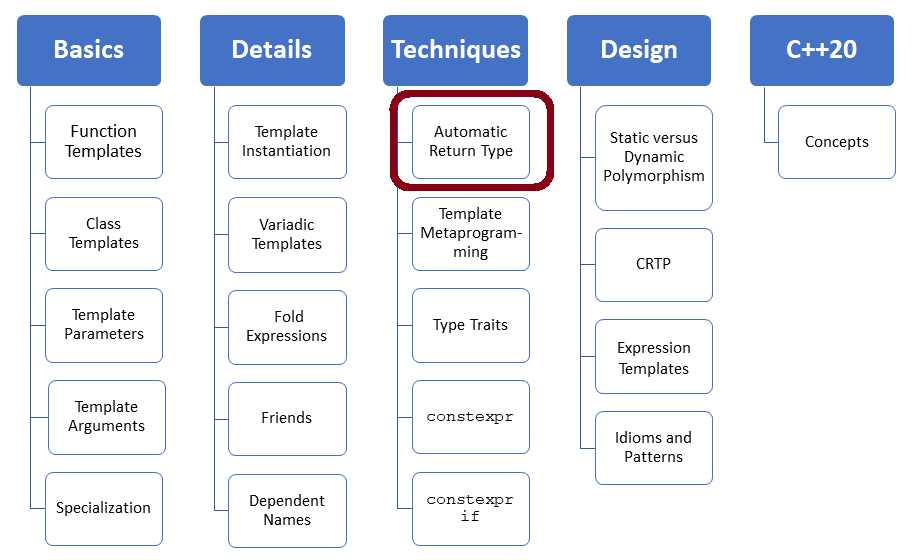
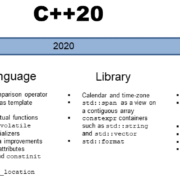
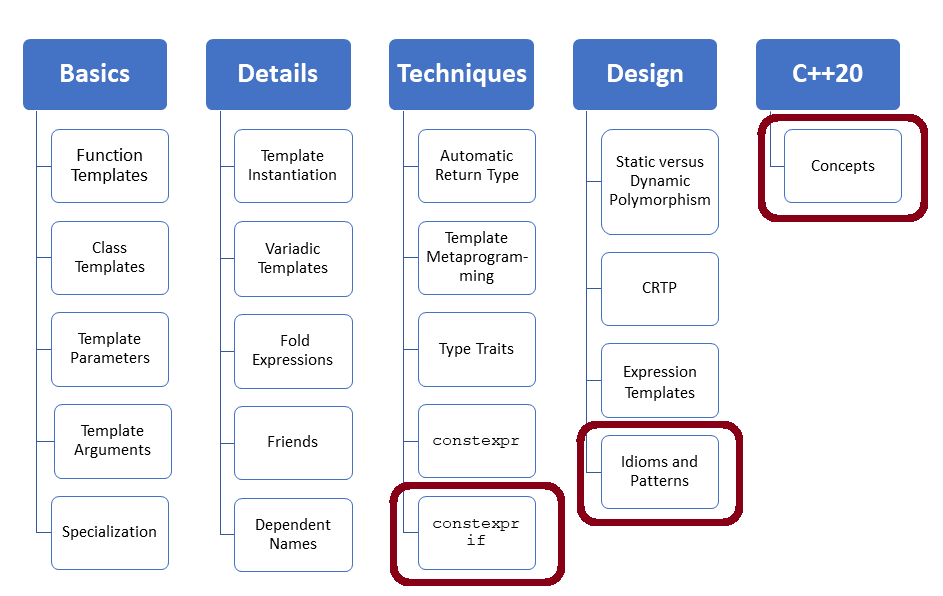

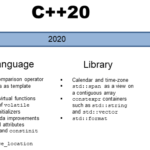
Leave a Reply
Want to join the discussion?Feel free to contribute!